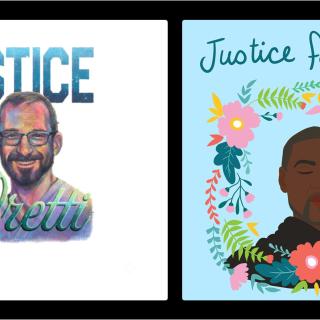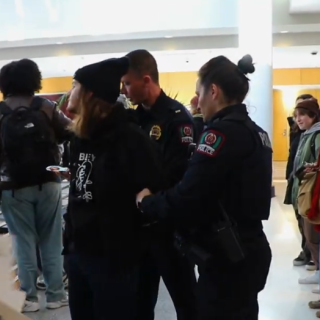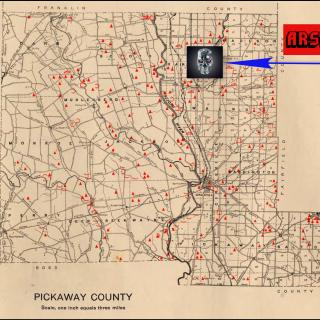As Andre Hill lay dying on a friend’s driveway in the early morning of December 22, 2020, Adam Coy, the now-indicted ex-officer with the Columbus Division of Police (CPD) who shot Hill and his dozen or more fellow officers who responded to the scene failed to offer first aid for his wounds. It was several minutes before these public servants who are sworn to protect and serve requested emergency medical assistance for Hill.
During settlement negotiations with the City of Columbus, Mr. Hill’s family asked for stricter requirements for police officers to be trained in first aid and equipped with supplies so they can offer aid immediately during use-of-force incidents. The other policy change they requested requires officers to activate their body-worn cameras (BWC) immediately when engaging with the public.
Robert Gresham, an attorney representing the family, shared concerns in a written statement:
The “Law”The family is pleased that Andre’s Law was passed, but the impact on the community remains to be seen…Columbus PD and other local law enforcement continue to shoot, injure, and kill citizens under circumstances that are clearly not justified and remain a source of trauma to our community, especially Black and Brown communities.
Ordinance 0196-2021, titled Andre’s Law, was passed by the Columbus City Council on February 1, 2021, and became part of the city code as Chapters 1914 and 1915.
Councilmember Emmanuel Remy, a sponsor of the city ordinance, said this week, “Since this policy was enacted we have witnessed it put in action in both practice and training.” He did not report that any follow-up legislation has been considered or enacted.
However, six months after its passage there was an amendment to the first ordinance that made it clear how CPD officers assigned to State and Federal Task Forces should comply with the rules.
Memorandums of Understanding can make it hard to understandIn a city like Columbus, in a county like Franklin, there are many situations where officers will be called into service in neighboring jurisdictions through Memorandums of Understanding often called Mutual Aid Agreements. Andre’s Law applies to Columbus Division of Police (CPD) officers wherever they are called into service.
Likewise, officers from other jurisdictions may be responding to incidents within the city of Columbus, but since Andre’s Law only applies to CPD officers, they are not subject to its requirements. This explains why the law didn’t apply to a Clinton Township officer working on a County Task Force within the city limits.
Nor does it apply to the 2000+ other sworn officers who work for the 40+ law enforcement agencies within the county.
Some of those agencies likely have similar policies that direct officers to provide immediate aid to suspects injured by their use of force. It is also likely that some don’t.
What are the consequences of violating Andre’s Law?The ordinance states:
Those who violate these new chapters can be subject to discipline, per City policy and applicable collective bargaining agreements.
What this means is that someone needs to file a complaint internally, such as the officer’s supervisor. An investigation would then be conducted by the Internal Affairs Bureau of CPD and reviewed by the officer’s chain of command.
Or a citizen needs to file a complaint with the Civilian Police Review Board. That complaint would be investigated by the Inspector General and reviewed by the board, and then by the officer’s chain of command.
In both cases, the chief of police would be determining the discipline meted out, based on the guidelines in the collective bargaining agreement with the Fraternal Order of Police Lodge #9. The officer can then ask for arbitration with the Safety Director.
But isn’t the officer charged with a crime?The short answer is maybe. But the crime is not Andre’s law. The crime is dereliction of duty.
The introduction to Andre’s Law on the city website explains:
However, in egregious cases, where the behavior evidences a reckless disregard for the express requirements of the new chapter pertaining to rendering aid, the City may pursue remedies beyond discipline, including the filing of criminal charges against violators for dereliction of duty.
Adam Coy is facing several charges for the murder of Andre Hill, including dereliction of duty. So, was the law that would require him to offer aid to Andre Hill already in place when he neglected to offer first aid? Or is he accused of doing something else equally egregious that morning?
Coy’s criminal trial has been postponed due to his ongoing cancer treatment.
Columbus Police Officer Ricky Anderson leaving Donovan Lewis’ apartment shortly after shooting him on August 30, 2022 (Source: Franklin County Common Pleas Case 23CV001021)
Are officers behaving differently?Department of Public Safety Assistant Director Glenn McEntyre reported a positive impact of the law.
He wrote, “There has been no pushback- just the opposite. Officers have generally gone above and beyond in assuring medical care is provided, and compliance with BWC requirements has generally been outstanding.”
Gresham, who also represents the estate of Donovan Lewis, a young man killed by CPD Officer Ricky Anderson on August 30, 2022, has cited Andre’s Law in Count Six of a wrongful death lawsuit against Anderson and four other CPD Officers: Chance Knox, Harry Dorsey, Jack Randall, and Justin Dodrill.
Gresham wrote, “Less than two years [after Andre’s Law was enacted] Columbus Police Department failed to appropriately render medical aid to Donovan Lewis.”
The lawsuit filed in February, currently in the discovery phase, lists facts they intend to prove in court:
G. 52. Immediately after shooting Donovan, Anderson stands in the doorway, allowing his dog to continue barking at Donovan. Anderson and the other officers scream at Donovan.
G. 53. About 25 seconds after shooting Donovan, Anderson says “I’m gonna have to leave.” Anderson turns and leaves Donovan’s apartment.
G. 54. Anderson never provides any aid or medical care to Donovan.
Anderson was charged with murder and reckless homicide. The other officers have not been charged with any crimes.
The internal investigations by the Inspector General will be on hold until all criminal investigations and resulting indictments have concluded.
Did Andre’s Law do any good?The major impact of the law was to remove any barriers to providing first aid. McEntyre replied by email to a request for information. He wrote,
The Division of Police implemented first aid certification and ensures [officers] are properly trained to render aid. Officers are trained on legal changes and trends on a regular basis. After the passage of Andre's Law, officers were trained on how to comply with the requirements, and each officer was equipped with a first aid kit.
He also shared that the city’s policies are reviewed every few years and they will make updates as needed to ensure the highest level of service to the residents.
Ramon Obey, Executive Director of the nonprofit, JUST (Justice-Unity-Social Transformation) said, “Andre's Law has been proven ineffective with the removal of Donovan Lewis from his bed instead of continuing to care for him."
He expressed additional frustration. “It’s hard to judge now because they are hiding the officers' identities with Marsy's Law. And we aren't seeing complete body-worn camera footage to know if the recent killings like Zachary Bryson were given first aid."
Can the rest of the county’s law enforcement agencies follow suit?It only took the Columbus City Council six weeks to put Andre’s Law into action. National news outlets had covered the shooting, local activists were outraged, and Ben Crump had come to town to represent Hill’s family.
It took that amount of pressure to get them to order some first-aid kits and train their officers to use them.
Columbus’ experience shows that with these legislated requirements, training, and access to necessary supplies, some officers will still not render aid.
Check your local city code or call your police department and ask if they are required and prepared to offer aid when they cause an injury, especially a life-threatening one. Share in the comments if your municipality is waiting for enough pressure to do the right thing.
Driskill Digest is a reader-supported publication.




